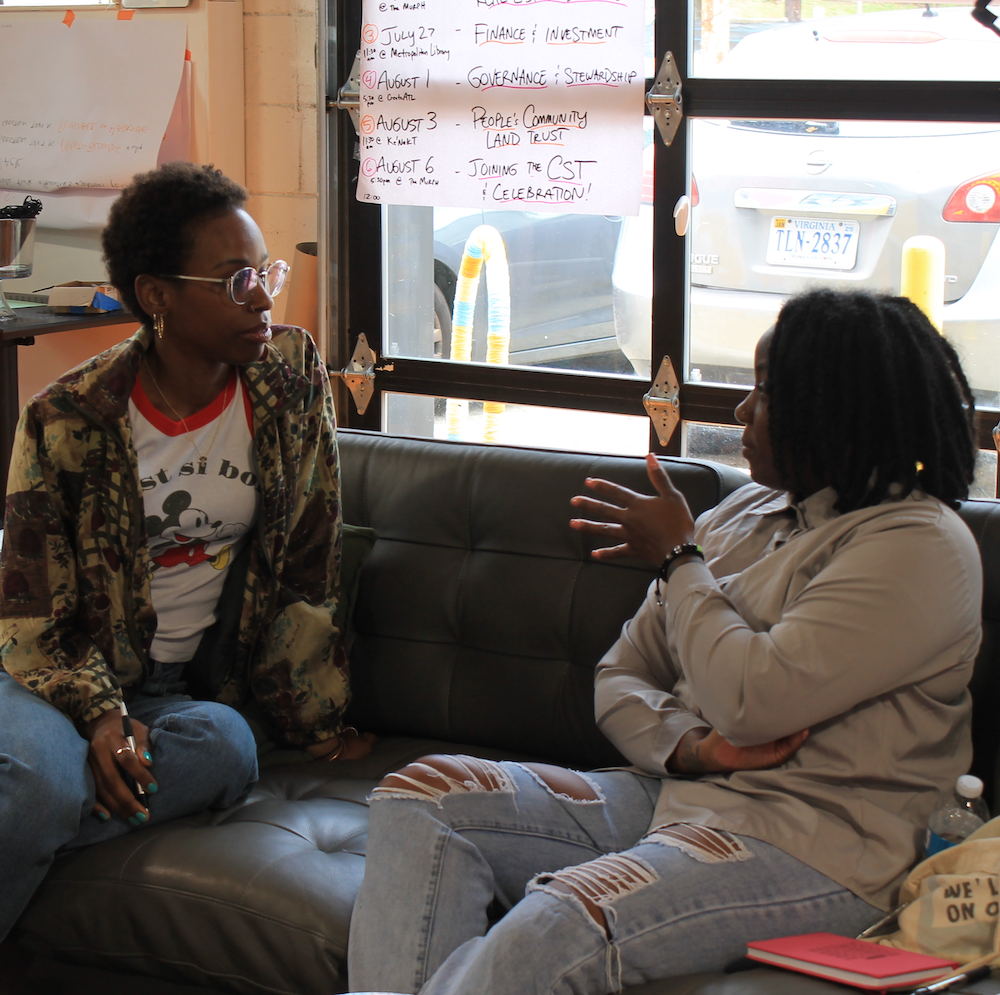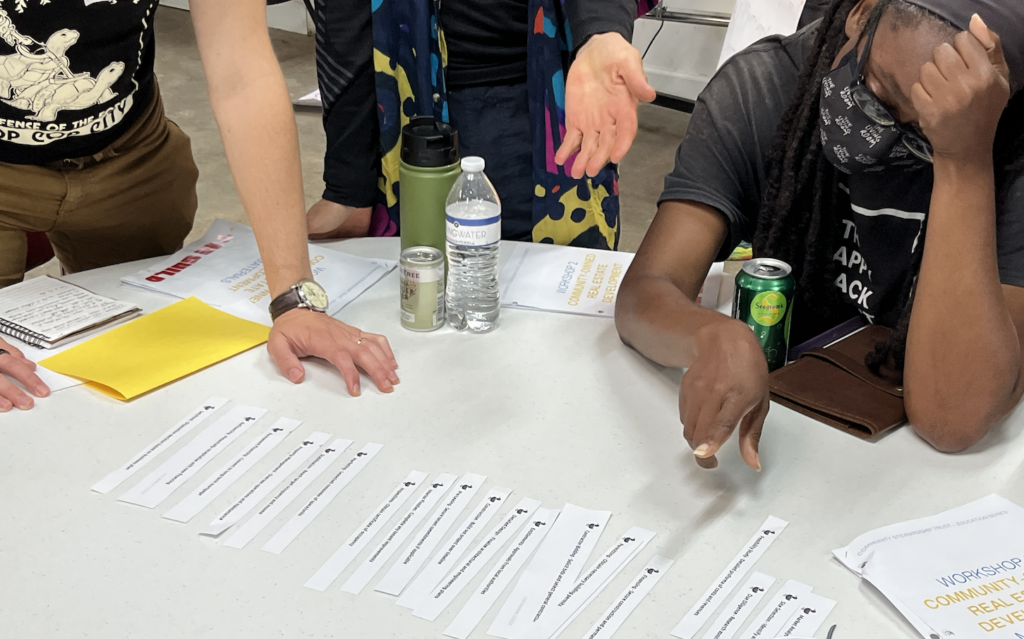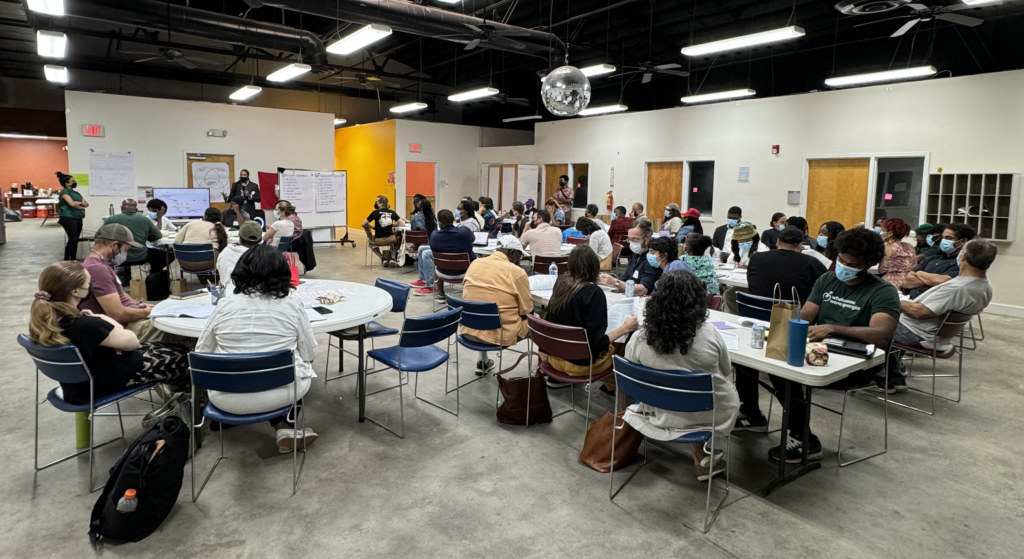Solidarity Economy Summer Series
The solidarity economy is a global movement to build a more fair, more sustainable economic system. It’s an alternative to the dominant capitalism, where people and the planet are valued more than financial profit and communities organize themselves around shared values of democracy, cooperative ownership, and mutual respect for each other and the earth.
Since 2020, The Guild has been laying the groundwork for a local solidarity economy through building community-owned models of land, housing and real estate.
As Atlanta’s first Community Stewardship Trust (CST) opens for community investment this Fall, we hosted #SOLIDARITYSUMMER — a series of workshops and training curriculum to prepare residents to join this movement with us and invest in the CST.
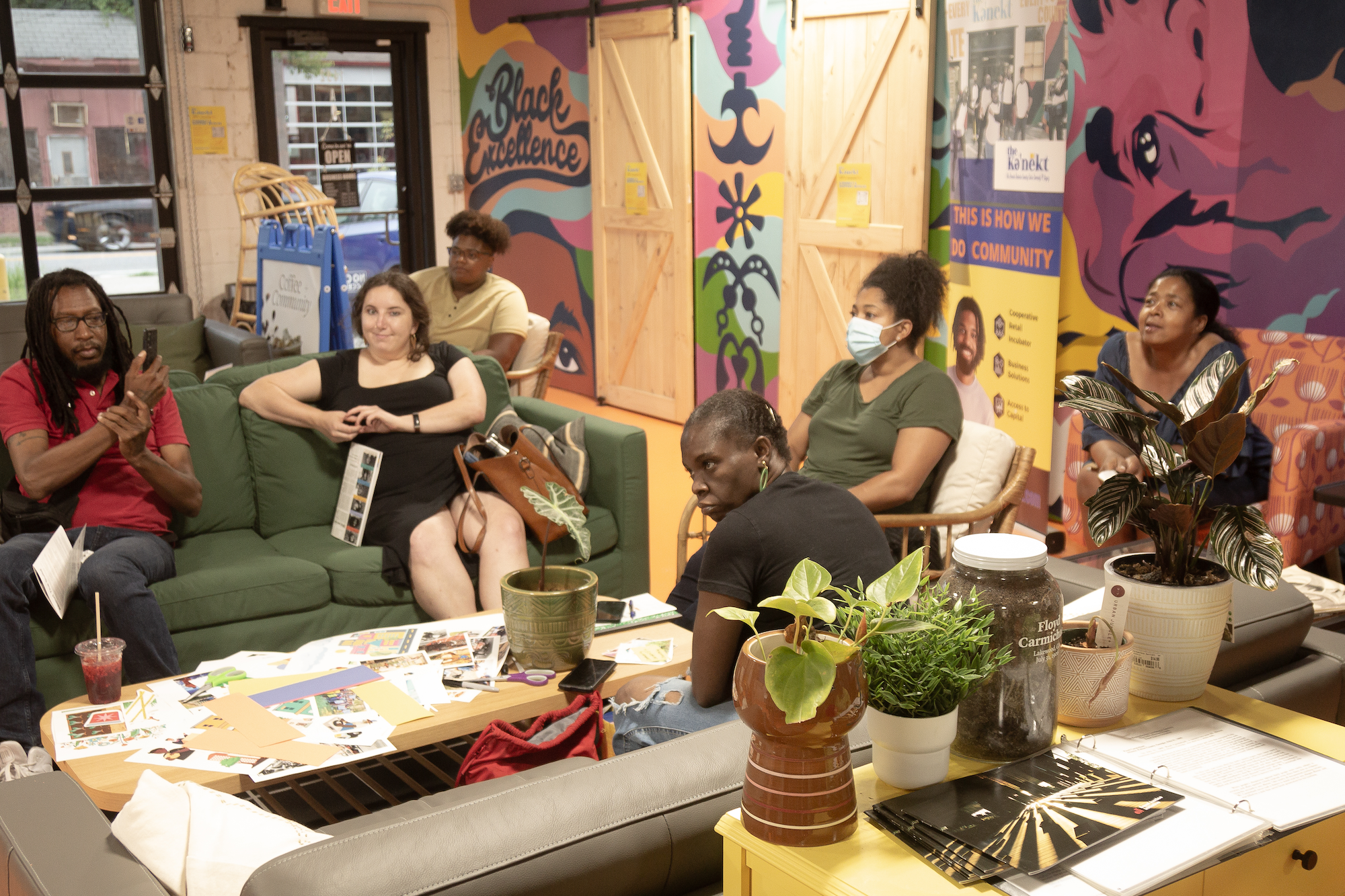
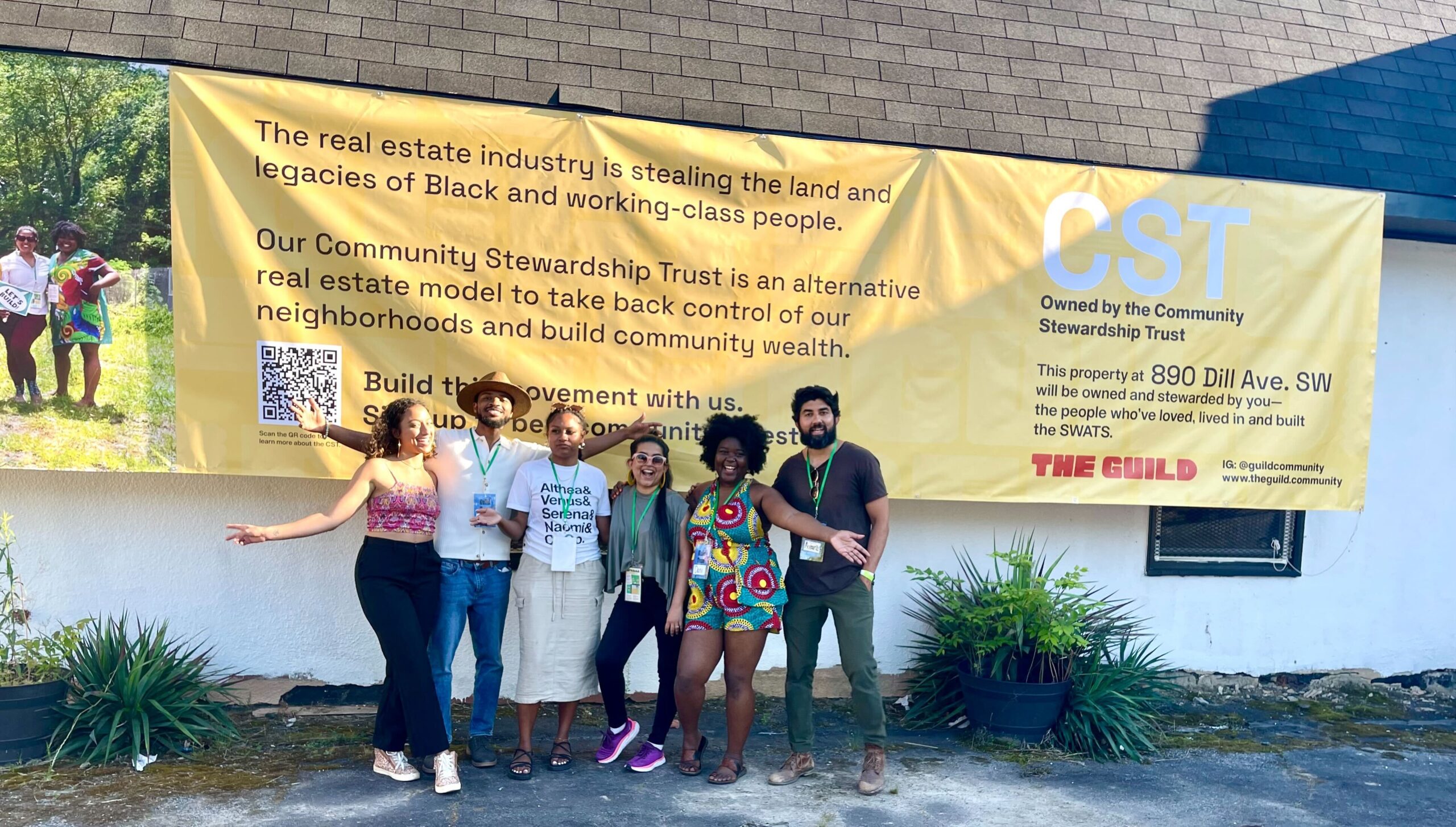
We hosted six in-person workshops to give community members the baseline knowledge necessary to meaningfully participate in the ownership and cooperative governance of the CST, including real estate development, the solidarity economy, finance, community governance, and becoming a community investor.
These interactive sessions were led by local leaders and experts who put these topics into practice in community.
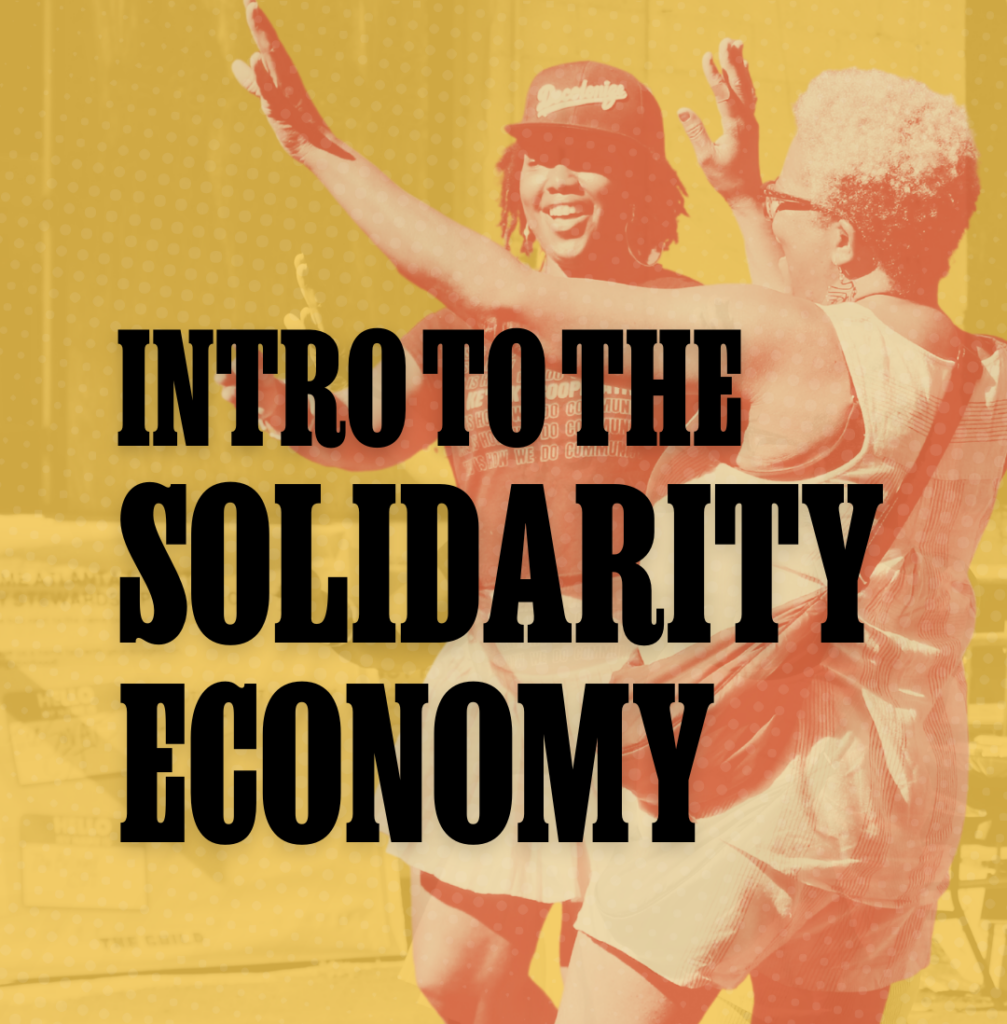
Intro to the Solidarity Economy
In this session, participants reflected on the values we wish to see in our own communities, learning from each other’s differences and similarities. We identified the key components and values of the dominant economic system and explored the solidarity economy as a framework that challenges it with alternative values like cooperation & shared ownership, democracy, justice & equity, sustainability, and pluralism.
Participants also examined real-world examples of the solidarity economy, recognizing how these values manifest and identifying key ingredients to successful alternatives while also understanding the benefits to these models.
Community-Owned Real Estate Development
In this session, participants learned the process and steps involved in real estate development and explored various ownership models, particularly the differences between individual private ownership and collective ownership, with a focus on Community Stewardship Trusts (CST). We distinguished between extractive, predatory development and community stewardship or collective ownership models. Additionally, we learned about the historical context of Black and Indigenous collective land stewardship and considered potential short- and long-term challenges associated with community stewardship of land and buildings.
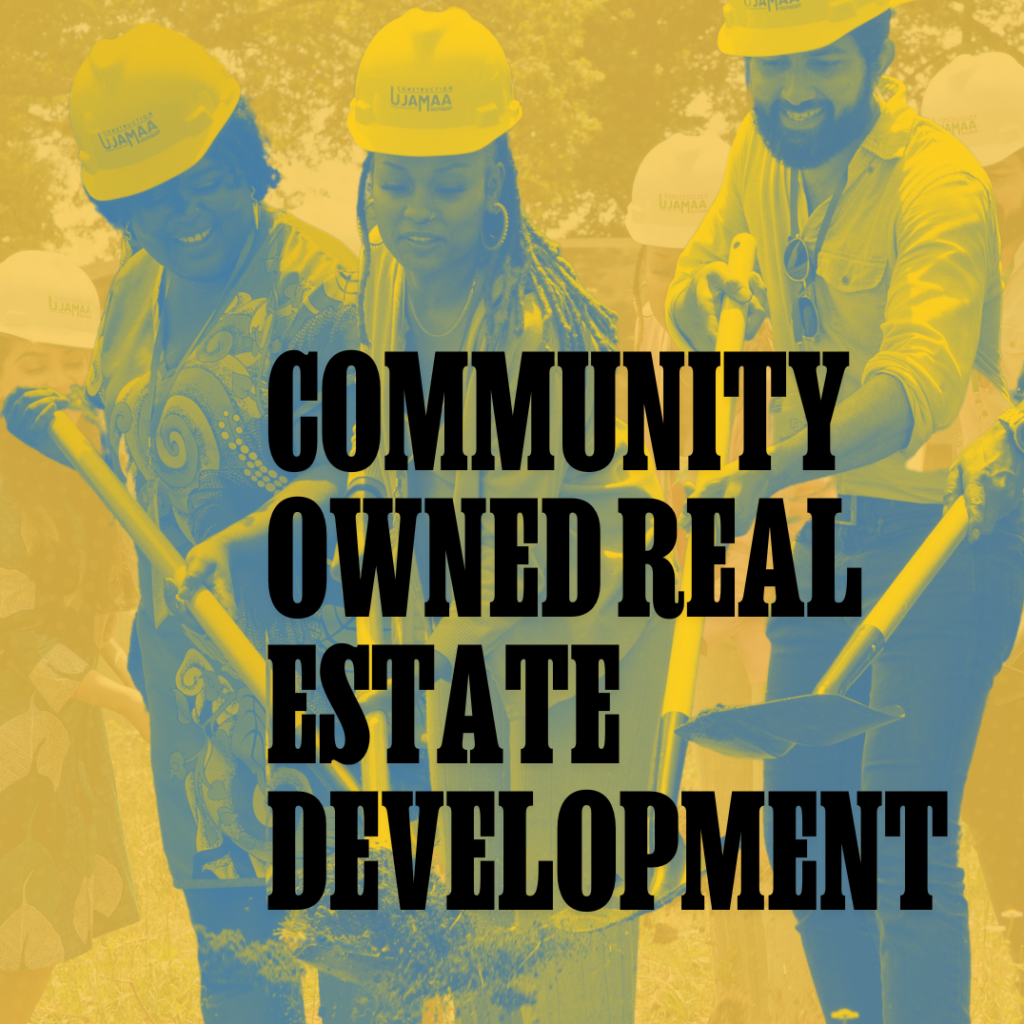
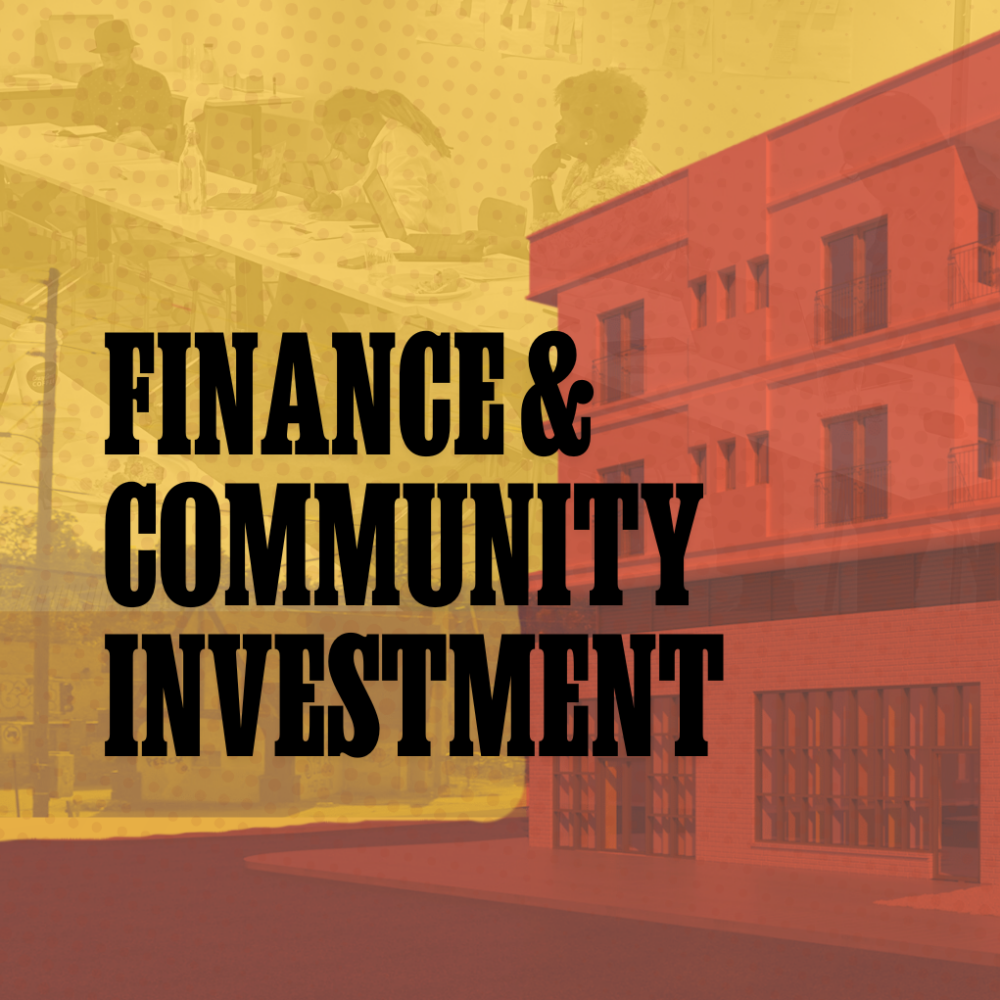
Finance and Community Investment
Guests gained an understanding of the importance of financial planning for both households and organizations. We explored various investment options, such as savings accounts, stocks, REITs, and the CST, learning about the benefits, limitations, potential returns, and community impacts of each. Attendees learned how to assess the financial health of a project or enterprise using key financial indicators and practices and discussed potential financial challenges that organizations like the CST may face while gaining insight into the CST’s unique financial practices, understanding how these align with its values and goals for community wealth building.
Stewardship and Governance
Attendees learned about the purpose of governance and how it supports the goals of the CST in building community wealth and self-determination. We explored various governance models, with a focus on “cooperative or community governance,” and examined how the CST embodies these principles through collective decision-making and shared responsibility. We discussed factors that could challenge cooperative governance, such as conflicting interests or power imbalances, and explored strategies to mitigate these challenges, like transparent communication, consensus-building, and equitable participation. This gave everyone a deeper understanding of how effective governance can foster community empowerment within the CST.

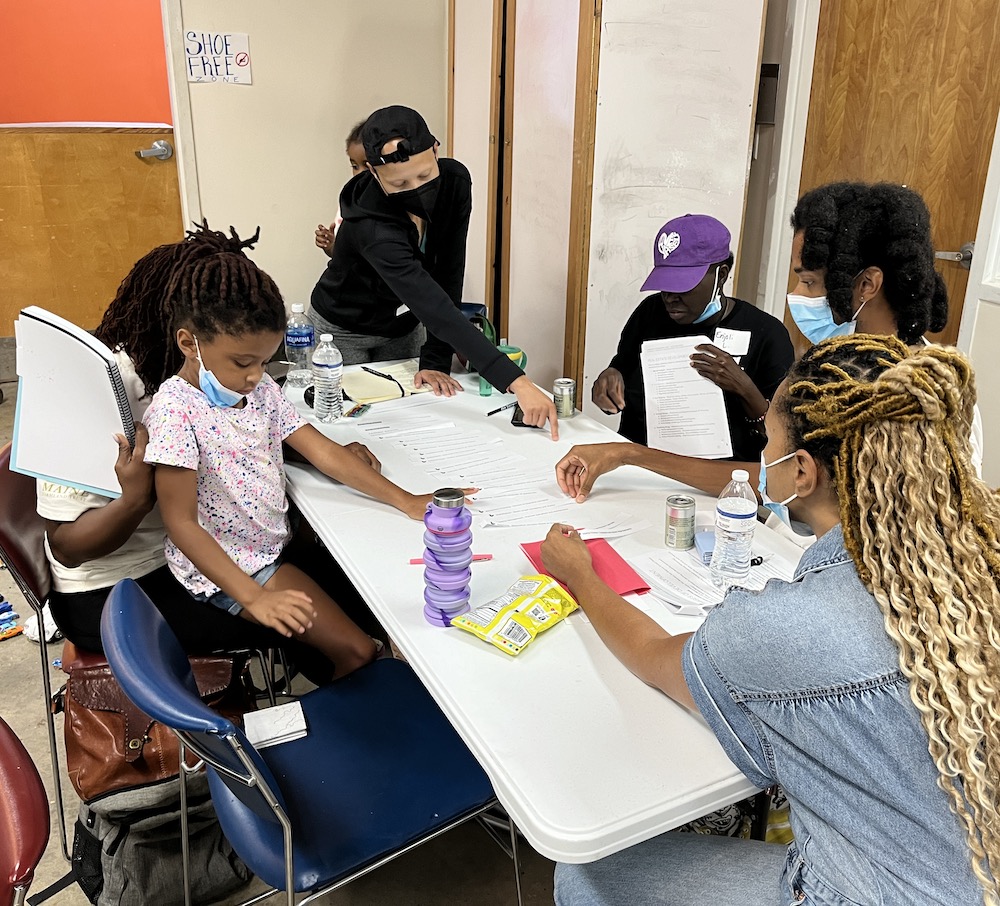


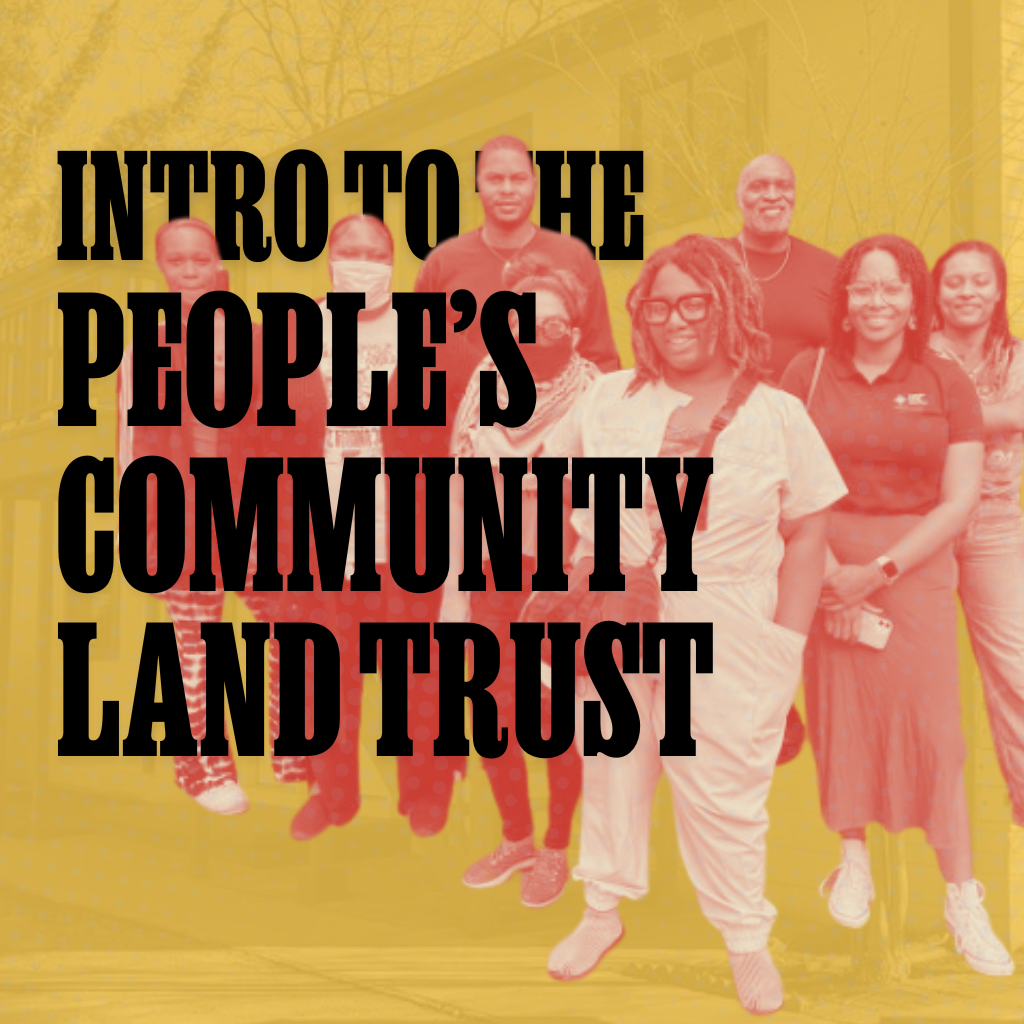
Intro to the People’s Community Land Trust
During this session, attendees learned about the history of Community Land Trusts (CLTs) within the context of the Black freedom struggle and Black collective land stewardship. We dove into the financial model of CLTs, examining its benefits for homeowners, renters, businesses, community members, and developers. Attendees also examined the governance model of CLTs, including the roles that community members and residents play in direction-setting and decision-making. This session also introduced how CLTs align with the Solidarity Economy movement, a vision for postcapitalism, and explored various CLT models and their possibilities, specifically the People’s Community Land Trust (PCLT) effort in Atlanta and discussed ways to support it, including donations, board invitations, staying connected, and advocating for public investment in PCLT.
Joining the CST
In this session, participants reviewed the primary and secondary goals and takeaways related to the CST, including onboarding onto the portal and understanding membership steps. We stepped through signing up, managing investor status, and accessing resources.
We celebrated our progress through the sessions together and the content of previous workshops and also learned about the CST’s commitment to billable work and annual share amounts. Additionally, participants had the opportunity to volunteer as user-testers for the investor portal and learned about the roles and processes for becoming a Stewardship Board member.

If you weren’t able to join us in person for the summer series, stay tuned for our on-demand online workshops on these same topics, coming this fall/winter. Stay plugged into our newsletter for updates!

